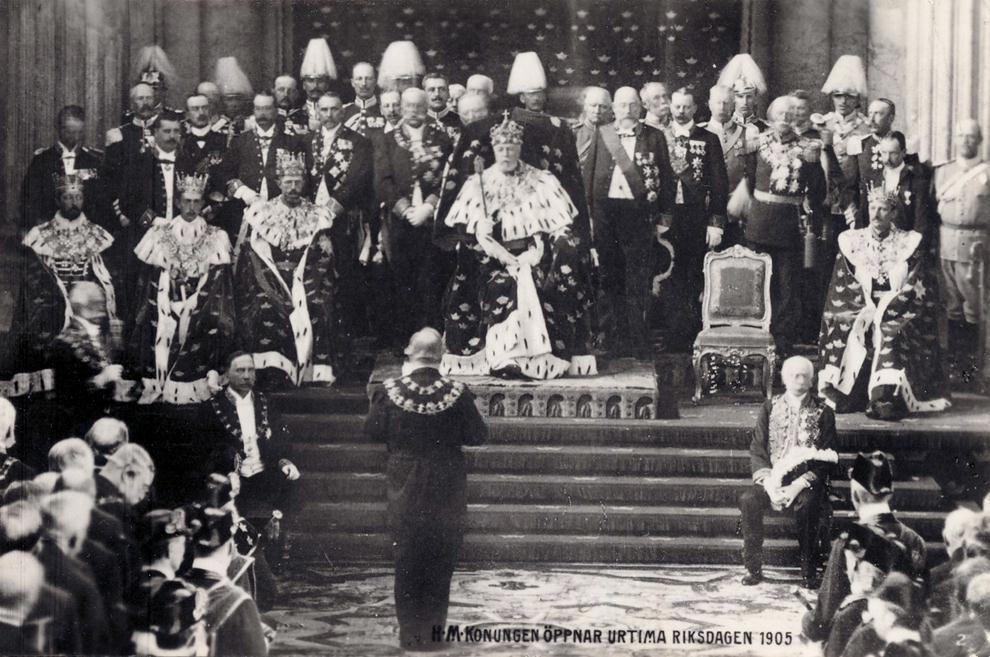Although most Americans are not acquainted with the details
of Oscar II's life, or even which of the Scandinavian countries he ruled,
King Oscar II is the third most recognizable monarchs in history, ranking
only behind Queen Elizabeth I and Henry VIII. King
Oscar's recognizability is not based on his charisma or the important world
events that marked his reign, but rather by his ubiquitous photograph on
millions of sardine cans.
Oscar II was one of the most able but least popular of the
Bernadotte rulers. He was the fourth of the Bernadottes to rule Sweden, a
dynasty of which Napoleon was the primary catalyst. In 1780, the Swedish
Parliament chose Napoleon's marshal Jean Baptiste Bernadotte to be the crown
prince of Sweden due to their mistaken impression that he was a close friend
of Napoleon and that Sweden could rely on France's help in regaining Finland
from the Russians.
Oscar's
brother, Charles XV, was the golden boy of Swedish royalty and had
extraordinary charm and charisma. Oscar was almost the direct opposite
and never had the personal magnetism to inspire confidence by his
subjects. His mother once summed up the difference between her two sons
when she stated: "Oscar does everything to be popular, without success;
whereas Charles does everything to injure his popularity, without
success. Oscar's reign was primarily noted for the breach of the
Swedish-Norwegian union in 1905. The disappointment of this event broke
Oscar physically and emotionally and lead to his death two years later.
King
Oscar's association with food is not limited to the sardine. One of the
classic Norwegian smorrebords (open-faced sandwiches) is simply
called "King Oscar", and is made with cucumbers, small shrimp, and
mayonnaise on white bread. However, King Oscar is more appropriately
remembered by the elegant Veal Oscar, veal cutlets topped with asparagus
tips, smothered with either Hollandaise or Béarnaise sauce, and crowned
with lobster nuggets or crabmeat. Here is a recipe for the
Hollandaise/crabmeat version/ Swedish movie buffs might enhance this
spectacular dish by watching Oscar portrayed by Claes
Ljungmar in the TV film
August ( 2007).
|
